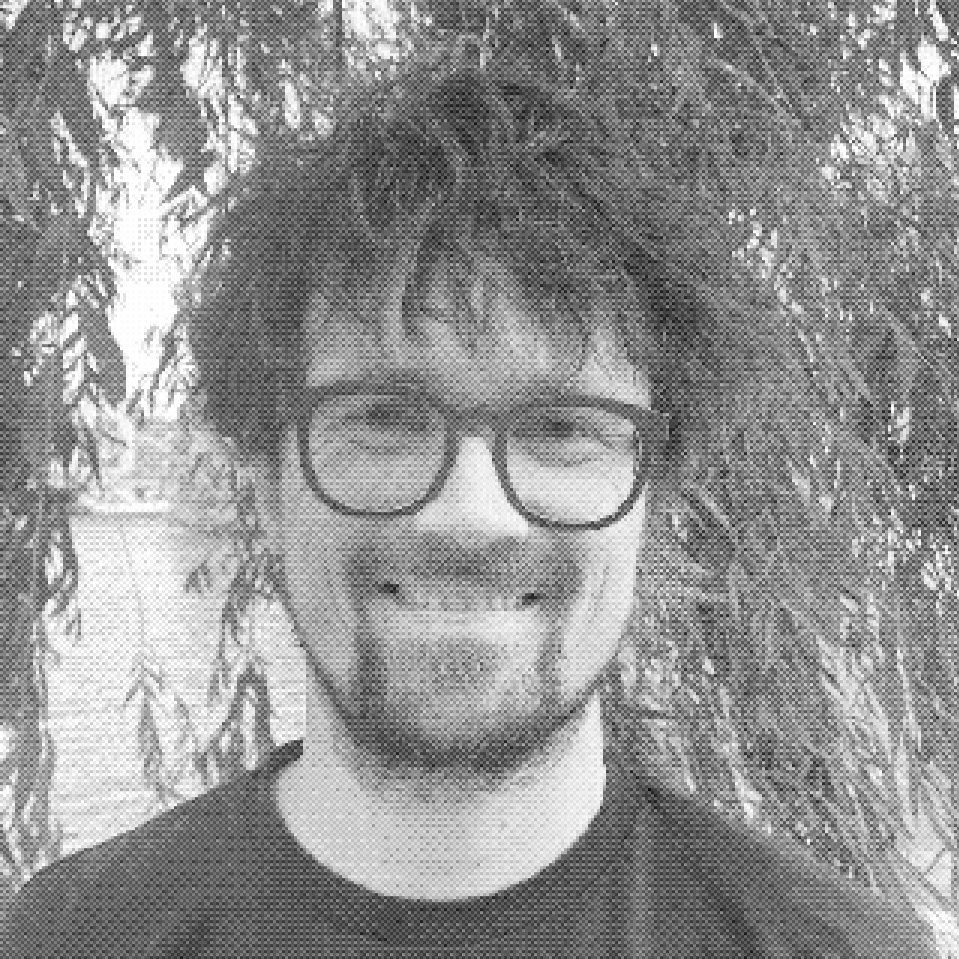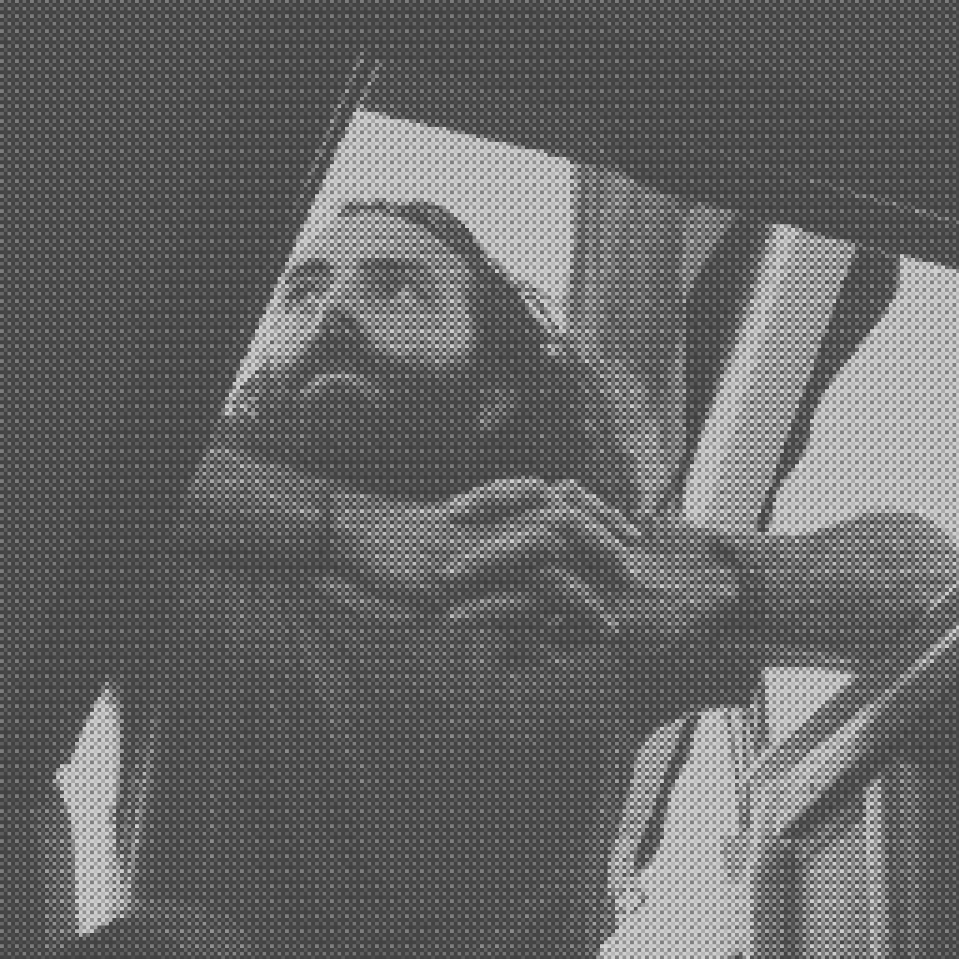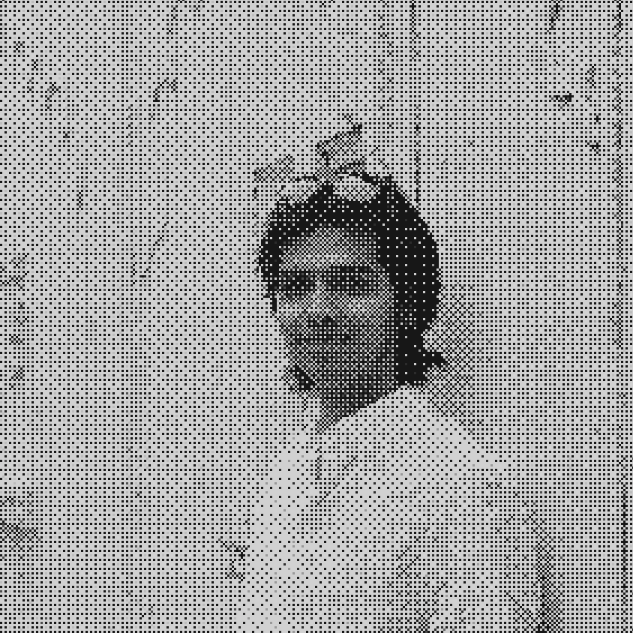

DWeb Weekend 2025
Current Science & Grand Challenges August 16-17, 2025 @ Internet Archive, SF
After more than ten years of pioneering work towards a genuinely decentralized and distributed system, it is time to revisit how far the decentralized web has come.
What is the current science in the peer-2-peer space? What are the immediate technical challenges ahead of us?
In the last decade, we have identified immutable data, cryptographic identities, convergent data structures, and an abundance of in-networking memory as foundational for a decentralized web. All these concepts, which were not available when the Internet was born, today allow us to dare a radical redesign of a distributed system that is offline-first, permissionless, trustworthy and resilient.
Join us!
DWeb Weekend 2025 is for researchers, builders, and the public to assess our current technological state, learn together, and move forward at speed. On Saturday, we welcome the public to join roundtables to discuss and share strategies on how to tackle the DWeb’s immediate technical challenges. On Sunday, we invite you to share a talk, join a technical workshop, or attend a hands-on demonstration by some of the top P2P protocol builders in decentralized tech.
Interested in presenting a talk, demo, or workshop? Fill out this form!
When & Where
Location: Internet Archive, 300 Funston Avenue, San Francisco
Date & Time: Saturday & Sunday, Aug 16-17, 10 AM - 5 PM
What to Expect
Some of the top builders of P2P, decentralized tech will be on hand to lead roundtable discussions, document your ideas, share talks, workshops, and hands-on demos.
You'll find:
- Talks on decentralized architectures, edge computing, and peer-to-peer networks
- Demos of Decentralized P2P tech, and self-hosted alternatives
- Discussions of privacy-first principles, self-sovereignty, and reducing dependency on solutions that hold all the control
- Networking with like-minded tech professionals, open-source contributors & potential partners
Program
Roundtable Discussions
-
10:00Opening and Framing
Welcome, Presenting DWeb Landscape & Challenges, Agenda setting (selecting roundtables) -
11:15Session 1
Room #1: P2P System Architecture & Terminology
Room #2: P2P vs. Power Imbalance
Room #3: P2P vs Federation Tradeoffs
Room #4: What can we do without personal identifiers
Room #5: Ensuring Backwards Compatibility in p2p tech -
12:00Roundtables Report Back
-
12:30Lunch Provided
-
14:00Session 2
Room #1: P2P Threat Modeling Hypercube
Room #2: Data Structures for P2P Apps
Room #3: How do we fund this?
Room #4: Converging on shared standards
Room #5: Current Adoption / Challenges for DWeb -
14:45Roundtables Report Back
-
15:15Break
-
15:30Session 3
Room #1: P2P Syllabus / Textbook Structure
Room #2: Delphi Sessions on P2P
Room #3: P2P for Multiplayer Games
Room #4: (P2P etc.) Commons Infrastructure
Room #5: Decentralized Deployment -
16:15Closing Circle
-
17:00End
Talks @ Sunday School Room
-
10:15Welcome and introduction to the day
-
10:30
Andreas Dzialocha - Building blocks for p2p applications
Over five years of research, testing, exploration and collaboration with other teams we can see useful patterns emerging which solidified in p2panda's "building blocks". They are what we could identify being useful for building p2p applications, especially with focus on privacy, robustness and user-control. We believe that this "modular" approach contributes the most to a wider, interoperable p2p ecosystem which outlives “framework lock-in”.
In this session I'll present how each of these modules are designed to provide Connectivity, Discovery, Sync, Encryption, Access Control, Transactions, ..., - with quick deep-dives into the knotty p2p bits here and there - and share what we've learned and what needs to be done next.
-
11:05
David Thompson - Distributed Programming with Object Capabilities
A casual look at programming with object capabilities using Spritely Goblins + some demos that you can participate in.
-
11:30Break
-
11:45
Matthew McKinney - The AIGNE Framework: Open-Source AI for Privacy-Preserving Applications Target
Big Tech wants you to send your data to their AI. We built an open-source framework that brings AI to your data instead. Here's how it works and why it matters. A technical overview of the AIGNE framework's modular architecture, its privacy-preserving patterns (like on-device processing), and how developers can build custom AI experiences while maintaining privacy guarantees. Includes examples of workflow patterns such as sequential and concurrent processing for scalable, user-centric applications.
-
12:10
Matthew Weidner - Why is Collaborative Data Hard? (Is it?)
Collaboration in the style of Google Docs traditionally requires fancy data structures like Operational Transformation (OT) or Conflict-free Replicated Data Types (CRDTs). This makes managing collaborative data hard, especially in a decentralized setting. I will examine why this problem is hard and what we can do about it.
-
12:45Lunch
-
14:00
Greg Slepak - Chelonia: End-to-End Encryption For Every App
Chelonia is the first implementation of Shelter Protocol. It is a framework for building end-to-end encrypted, federated web apps. Learn how to make your app truly end-to-end encrypted. Defeat surveillance capitalism while keeping your apps user friendly.
-
14:30
Duke Dorje - Identikey: Why our future as a free people depends on private keys, digital identity, and our model of authority online
We are experiencing society-wide dopamine hijack writ large - most people's main source of information and connection online is social media, yet what we see is determined by powerful AI which serves the interests of advertising companies. Knowing what is real vs fake increasingly relies on these same for-profit companies to tell us the truth. Sense-making is largely broken: what information do you trust and take in? This answer often differs widely even in the same regions.
We will show why user-owned data, no-authority ontologies, and private key management is vital to the fight to maintain human freedom and agency. We will dive into the architecture of IdentiKey, a framework and suite for everyone to maintain privacy, security, and access control -- and why this is becoming more urgent by the day as AI agents are being deployed worldwide.
-
15:00Break
-
15:15
Akhilesh Thite - DWeb Without P2P Browsers: Bridging Protocols and People
The decentralized web is technically ready—but current browsers load P2P content only via HTTP gateways. This gap isn’t just about technical problems—it’s also about pushback against Big Tech’s data-driven business models and the shift toward AI-powered web experiences. I’ll show how Peersky reimagines browsing with native support for IPFS, IPNS, Hypercore, Web3—and what lies ahead.
-
15:45
Ying Tong Lai - Privacy Invariants in Digital ID
State-issued digital ID is being rolled out in the EU, many states in the US, and worldwide -- often with broken designs that are fully linkable. What are the privacy guarantees of these systems, and which use-cases are they appropriate for? How does digital ID compare to alternative forms of ID or authorisation? This talk uses the framework of privacy invariants as a way to reason about these questions.
-
16:15Wendy Hanamura, Christian Tschudin, Dmitri Zagidulin, Andreas Dzialocha - Closing
Breakout Room I
-
10:30
Eric Harris-Braun - Come play with Holochain Apps on Moss
Bring your own laptop!
Moss is a framework for building collaborative social spaces using Holochain hApps. It allows groups to easily create and manage their own collaborative environments by composing different tools (like chat, spreadsheets, drawing tools, etc.) into a cohesive space. Think of it as a customizable, peer-to-peer workspace built on Holochain.
Each group and tool within Moss operates as its own private, peer-to-peer network, enhancing privacy and control.
Moss provides a framework for groups to gradually transition to a more decentralized way of working by adopting Holochain-based tools for various tasks like communication, project management, and governance.
We'll show you how easy it is to set up groups and work in Moss.
-
11:30Break
-
11:45
Sri Chilukuri - Messagepedia Demo
Messagepedia's vision is to create The Collective Intelligence App, a reimagined file sharing and messaging solution for the AI era, where trusted peers can securely and privately sync, share, collaborate on, and manage - and even enhance with AI - content in compliance with data privacy and sovereignty laws.
-
12:45Lunch
-
14:00
Tyler Childs - 80 Years of Memexes
What is a Memex? This is a hands on demonstration with your hands. Bring your gadgets, we'll get you a memex running on it before the session even starts and then just try and pay attention during the history lesson. We'll give you an overview of the origins of Memex, through the Memexes of IBM, Microsoft, Google, Apple, my memex and yours.
-
14:30
Dmitri Zagidulin - DIDs and Contacts for P2P
Cryptographic keys make for great identifiers - you can prove control of a key, use it for routing, encrypt to it, etc. But you know what's even better than a key? Several (rotatable) keys, from one cryptographic identifier (with room for multiple inboxes/api endpoints)! Join us for an intro and discussion of how W3C DIDs (Decentralized Identifiers) can be useful for P2P devs.
Breakout Room II
-
10:30(untaken)
-
11:30Break
-
11:45
Daveed Benjamin - Above the Page: The Meta-Layer as Civic Infrastructure for a Trustworthy Internet
The decentralized web has given us powerful primitives—immutable data, cryptographic identities, convergent data structures—but our interactions are still trapped inside platform silos and flat webpages. The meta-layer introduces a shared, decentralized interface above the web: a civic overlay where people, peers, and protocols can meet directly “above the page.”
This session will explore how a meta-layer can serve as an open substrate for decentralized presence, trust, and collaboration—composable across any site, governed by communities, and secured by distributed identifiers and verifiable overlays. We’ll examine how meta-layers integrate with peer-to-peer infrastructure, enable portable reputation, and provide safe, AI-aware interaction zones without platform lock-in.
Participants will leave with:
A clear understanding of the architecture and primitives of the meta-layer. Examples of “topic” and “region” layers (e.g., a We Culture Layer, a SF Zome) built for civic, creative, and governance use. A direct invitation to help shape this emerging civic infrastructure by joining the Internet Society Meta-Layer SIG—a global working group designing interface-level governance for a trustworthy, decentralized Internet.
-
12:45Lunch
-
14:00
Christian Tschudin - Tiny SSB - Concepts & Hands On Workshop
Tiny SSB is an evolving prototype featuring secure text/voice/sketch/location-enabled chat, Kanban board, games on your smartphone, all based on the venerable Secure Scuttlebutt (SSB) approach of append-only logs. As such it inherits most of SSB's security properties, is staunchly offline-first and deliberately connection-less, but is specifically redesigned for narrow-band data replication and meshing with barebones communication means (Bluetooth Low Energy, LoRa, amateur radio, USB sticks - no Internet required).
Narrow-band is desirable, both in practice/emergency situations but also as a research vector for identifying minimal communication requirements (as a healthy exercise in Internet detox). tinySSB invites developers and students to absorb Conflict-free Replicated Data Types (CRDT) concepts and to apply them beyond chat, and especially to look into productivity apps (shared editing of text, graphics and spreadsheets) as well as CRDT-based token systems.
Learn about P2P, offline first tech with the least requirements! We'll introduce the concepts of tiny SSB, then take you through some hands-on demos (some devices are provided, Android users can join by downloading the app).
-
15:00Break
-
15:15
Santiago Bazerque - From "conflict free" to "conflict resolution": a case for a BFT distributed database
We'll see some parallels between how CRDTs work and the conflict resolution strategies used in traditional databases, like rollback journals and MVCC, and how these techniques can be hardened to operate in an adversarial environment, with an eye towards creating a database that can be used as a back-end for p2p applications.
Breakout Room III
-
10:30
Srayan Jana - A simple game using Pion WebRTC
Showing off a simple peer to peer game I wrote using Pion, a Go implementation of WebRTC, and Ebitengine, a game engine for Go. I explain the technical choices I made, and the potential for future projects using this as a starting base.
-
11:30Break
-
11:45
John Gonzalez & Gitonga Miriam Njeri - Leveraging distributed networks of trust to accelerate equitable and efficient global philanthropy
With the ongoing restructuring of financial and infrastructure support from government and non-government organizations (NGOs), there is a growing need to facilitate direct giving to emerging organizations doing direct support to communities in need across the globe. At the same time, the sophistication scams and schemes that misrepresent, co-opt or spoof authentic relief and support efforts has put a premium on verifying the legitimacy of bona-fide actors in far-flung regions and communities.
How might we engage a verifiable trust network to significantly increase confidence in the legitimacy and effectiveness of both established and emerging NGO teams to deliver positive impacts in there local communities?
-
12:45Lunch
-
14:00
Jake Watters - Secure polling system
I'd play a 5 minute presentation about the project, and take questions and give answers about the project and its possibilities
-
15:00Break
-
15:15
Greg Slepak - End-to-End Encrypted Apps For All
Learn how building apps with Chelonia (an end-to-end encrypted framework) works, and play with a real app that's built on Chelonia.
Speakers
-

Ying Tong Lai
Ying Tong is an applied cryptographer working on privacy for coordination and purpose limitation. She is interested in real-world applications and better methods for threat modelling and inclusive design. She has worked on financial privacy, privacy-preserving digital identity, and protocols for zero-knowledge proofs and multi-party computation. She is also a contributor to the ZKProof Standards effort to standardise generic zk-SNARKs.
-

Matthew Weidner
Matthew is a software developer at Common Curriculum, Inc., where he works on a real-time collaborative app for teachers. He is also a PhD student in absentia at Carnegie Mellon University. Matthew is interested in everything CRDT and hopes to one day make FOSS collaborative apps a reality. He writes a developer-focused blog at mattweidner.com.
-

John Gonzalez
John brings over twenty years of leadership experience across the private and social sectors. Throughout his career, he held various leadership positions in product management and strategy, business development, and executive management. John earned his Bachelors in Computer Science & Electrical Engineering from MIT, and MBA from Stanford. As head of Candid’s Product Management division, John will leads overall product vision, product strategy, and product development at Candid. As a member of the executive leadership team, he collaborates across Candid's divisions to develop and deliver products and services and to ensure Candid's offerings are widely adopted and aligned with sector trends.
-

Dmitri Zagidulin
Working on open standards (W3C, IETF, DIF, OIDF) and FOSS software in the area of decentralized encrypted storage and access control, verifiable credentials and identity, and anything to do with cooperatives. Loves the ocean and anything to do with water, books, and anarchic tech.
-

Greg Slepak
Greg Slepak is a software engineer interested in protecting people's information. He got his start securing data at rest with an app called Espionage — user-friendly folder encryption and plausible deniability for Mac users. He moved on to securing data in motion, creating DNSChain and defining DPKI (decentralized public key infrastructure), a vision to fix the inherent security flaws in HTTPS. His latest work is Shelter Protocol, a way to build any web app that is end-to-end encrypted, decentralized, and user-friendly.
-

Eric Harris-Braun
Eric Harris-Braun co-founded Holochain, Holo & the MetaCurrency project, each of which focus on a different layer of technical infrastructure for embodying a new economy. Holochain delivers a massively scalable framework for truly distributed web applications, which Holo uses to provide HoloFuel a value-stable currency backed by the productive capacity of web hosting, while the MetaCurrency project delves deep into the post-monetary currency designs to foster a more thrivable world.
-

David "dave" Thompson
David Thompson is the CTO of the Spritely Institute, a US based nonprofit and research institution that is developing new technologies for the decentralized web. David leads Spritely's engineering team and contributes to the development of the Goblins distributed programming framework and the Hoot Scheme-to-WebAssembly compiler.
-

Sri Chilukuri
Product & Business Leader with 25+ years’ experience managing B2B Software. Founder and CEO of Messagepedia.
-

Jake Watters
Jake has been to too many meetings at hackerspaces and other communities while watching national politics and seeing the dangerous rise in centralized power. Needing a distraction from electronics and electric vehicles, they started an ambitious project to create de-centralized democracy in a form that hopefully will have a growing impact on our world.
-

Gitonga Miriam Njeri
I am Gitonga Miriam, CEO of LinkedTrust. I am from Nairobi, Kenya, where I lead efforts to build inclusive, decentralised trust systems that empower individuals with ownership over their digital identities and credentials. My work focuses on verifiable credentials, open standards and decentralised ecosystems. I'm passionate about technology that is decentralised, portable, addressable, and stored where you want. I believe in building systems that are ethical, accessible, and community-driven.
-

Christian "cft" Tschudin
Diploma in Mathematics; PhD in Computer Science; PostDoc at ICSI, Berkeley; Assoc. prof. at Uppsala University, Sweden; Since 2002 full professor at the University of Basel, Switzerland. Research interests: distributed systems, computer neworks, mobile code, Secure Scuttlebutt (SSB), metamorphic software ("how to securely use your computer post-compromise"). Radio amateur.
-

Duke Dorje
I have a background in distributed systems, infrastructure (devops), cryptoeconomics, applied cryptography (PGP corp), and I'm pretty good at hacking together systems. I've done work at large companies, small startups, and radical semi-anonymous DAOs. I've been building IdentiKey for the past several years, a system of protocols and products that exists to address the roots of incumbency in our digital spaces through applying web3-style tech to identity and data ownership. I believe with the right tooling, a silent majority of people who have a subtle sense of 'wrongness' in using the corporate internet can come together and create affectively different kinds of spaces that don't have the twisted incentives that stem from the user extraction / attention economy / surveillance capitalism paradigm. I'm currently writing a post-quantum proxy recryption library for sharing data that's highly available but without a trusted cloud provider.
-

Tyler Childs
An applied engineer. Inventor of the Plan98 operating system and the corresponding Memex application.
-

Andreas "adz" Dzialocha
Working on p2panda (building blocks for p2p applications), Toolkitty (coordination app for collectives, organisers and venues) and Reflection (collaborative, local-first GTK text editor) with GNOME
-

Daveed Benjamin
Daveed Benjamin is a technologist, patent holder, and author with a BS and MS in Engineering from Stanford. As a “Shift Shaper,” his work focuses on altering systems of consciousness to catalyze the deep shifts that humanity urgently needs. As a founder of the Meta-Layer infrastructure SIG and the BRC333 protocol and author of the book “The Metaweb: The Next Level of the Internet," Daveed's focus is decentralizing knowledge, protecting cognitive freedom, and building collective intelligence.
-

Santiago "santi" Bazerque
I'm a computer scientist and small business owner from Argentina. I work on Hyper Hyper Space, a sync engine focused on: Authority decentralization: full peer autonomy and BFT sync - Post-CRDT consistency: modeling non-monotonic data in a coordination-free setting. My plan for this year is releasing a new version of the engine, and leveraging our new data model to be able to plug the sync engine into traditional storage systems, with modest adaptations/limitations on the app side. The end goal is having DX-parity (or close!) with traditional centralized systems.
-

Srayan Jana
An independent game developer living in the SF Bay Area. Obsessed with weird technologies like WebRTC datachannels, and always thinking about how to make something fun out of them.
-

Akhilesh Thite
Akhilesh is a hacker and artist building decentralized tools for a more resilient, accessible, and user-empowered internet. He is currently developing the Peersky browser, contributing to the Distributed Press project, and collaborating on various projects in the DWeb space. He was a DWeb Fellow in 2023 and an active member of the community ever since, he is also pursuing a Master’s degree in Computer Science at the University of California, Santa Cruz.
-

Matthew McKinney
Matthew is a pioneering Tech Lead who architects growth strategies to onboard Fortune 500 clients onto a new digital experience in AI, and decentralized systems. Currently, he is a CEO at ArcSphere, AI-native browser and AIGNE, the agentic ecosystem for AI apps. McKinney has dedicated over 15 years of his career to transforming how businesses adopt and scale emerging technologies. He launched one of Canada's first public cloud platforms, which generated over $10 million revenue in the first year and developed partnerships with tech giants like Microsoft Azure, Oracle, and AWS. Matthew holds an MBA in Information Technology from Seattle University.
Who
DWeb Seminar 2025 is led by Research Director, Professor Christian Tschudin and Associate Research Director, Andreas Dzialocha. The event is produced by DWeb organizer Wendy Hanamura, and sponsored by the Internet Archive.
